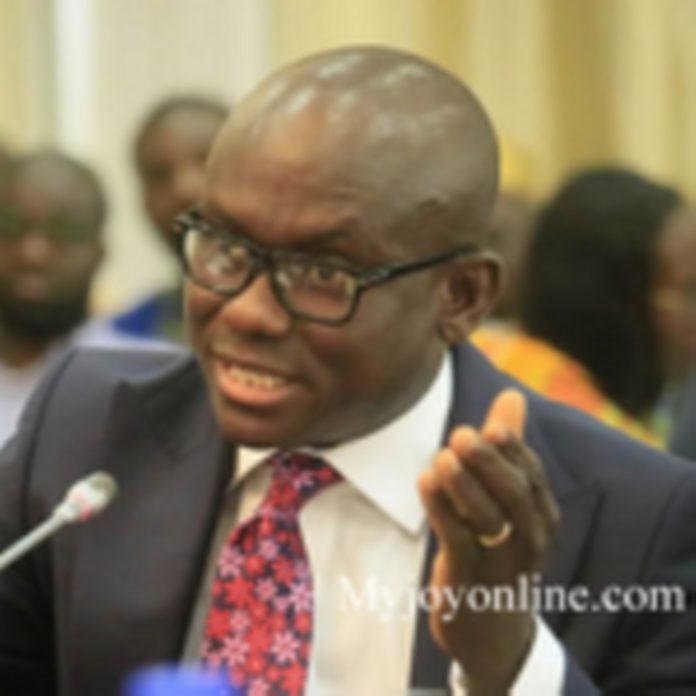Attorney-General and Minister for Justice, Godfred Yeboah Dame, has called for critical reforms to the legal regulatory processes governing international arbitration in Africa.
Speaking at the International Bar Association’s annual conference in Mexico City on Thursday, Dame stressed the growing impact of arbitration on African economies due to the rapidly evolving business landscape and the increasing use of alternative dispute resolution clauses in commercial agreements.
Godfred Dame expressed concern about the potential for abuse within the arbitration system, citing the secrecy of proceedings and the finality of awards as contributing factors.
He noted that this framework has led to some questionable outcomes for African countries.
“For all its touted advantages, the nature of arbitration, especially its secrecy and finality, can become an unwitting vehicle for fraud and abuse against the people of Africa,” he stated.
He highlighted instances where companies that failed to substantiate claims in African courts were able to secure substantial awards in international arbitration.
Godfred Dame also pointed out the financial burden imposed on African nations by arbitration proceedings held outside the continent, usually in places like London, Paris, or New York, even when the disputes involved African parties.
This not only limits the opportunities for African arbitrators but also stifles the development of Africa’s arbitration capacity.
One notable example cited by the AG was the 2023 case involving the Government of Nigeria and Process & Industrial Development Limited (P&ID), which resulted in a $11 billion arbitration award against Nigeria before being set aside by the London High Court.
Godfred Dame said such cases highlight the prejudice African nations often face in international arbitration forums.
“While international arbitration promises neutrality and efficiency, African countries have frequently been on the losing end of unjust and biased rulings,” he said.
He added that Africa must work towards creating a justice system that ensures transparency, fairness, and the rule of law.
Despite these challenges, Godfred Dame did not advocate for Africa to distance itself from international arbitration but rather to reform how it is conducted on the continent.
He called for stronger safeguards in commercial disputes involving African states, especially given the high stakes and the vulnerability of state funds.
The AG stated the need for arbitration to take place in Africa, under African legal frameworks, in cases where African nations are involved.
Ghana, Godfred Dame noted, is already taking steps to address this by reforming its arbitration framework.
The country is amending the State (Property and Contracts) Act of 1960 to mandate that all contracts involving the state stipulate Ghanaian law as the governing law and Ghana as the seat of arbitration.
This would eliminate the need for costly arbitration processes in foreign jurisdictions and ensure that such cases are handled domestically.
Removing Global Regulatory Barriers:
Godfred Dame further urged global leaders, particularly those overseeing the legal profession, to rethink the rules governing cross-border legal practice.
In today’s interconnected world, he argued, law practice has become inherently international, making it essential for African lawyers to meet global standards and participate in resolving disputes with cross-border implications.
“We must remove licensing barriers that limit lawyers’ ability to appear in jurisdictions outside where they were trained,” Godfred Dame said.
He acknowledged the challenges posed by different legal systems and professional standards across countries but suggested that international legal practice has already laid the groundwork for such changes.
Godfred Dame highlighted the incongruity of allowing state counsel to represent nations in international arbitration proceedings without a specific license but then barring them from appearing in domestic courts of the same jurisdictions.
He called for the removal of such barriers to allow lawyers to practice across borders, particularly in disputes involving nations.
Impact of AfCFTA on Law Practice:
Turning to the African Continental Free Trade Area (AfCFTA), the AG highlighted the importance of the regional integration initiative for African lawyers.
AfCFTA, which aims to connect 1.3 billion people and create a $3.4 trillion economic bloc, has established a Dispute Settlement Body to address trade disputes between member states.
Godfred Dame noted that while AfCFTA offers tremendous opportunities, it also raises questions about potential conflicts between its dispute resolution mechanisms and those of individual countries.
He highlighted the need for African lawyers to actively support AfCFTA’s work and ensure the success of its dispute settlement body.
“I urge you all to support AfCFTA, particularly in ensuring that the dispute settlement body succeeds,” Godfred Dame said.
He called for deliberate efforts to train African lawyers in handling the complexities of regional trade disputes and promoting the benefits of regional integration.
The Attorney General reiterated the need for Africa to embrace legal reforms in arbitration and cross-border practice to ensure that the continent can fully benefit from globalisation while protecting its sovereignty.
By doing so, Africa can not only develop its legal expertise but also foster a fairer and more transparent business environment for its people, he stated.
ALSO READ:

